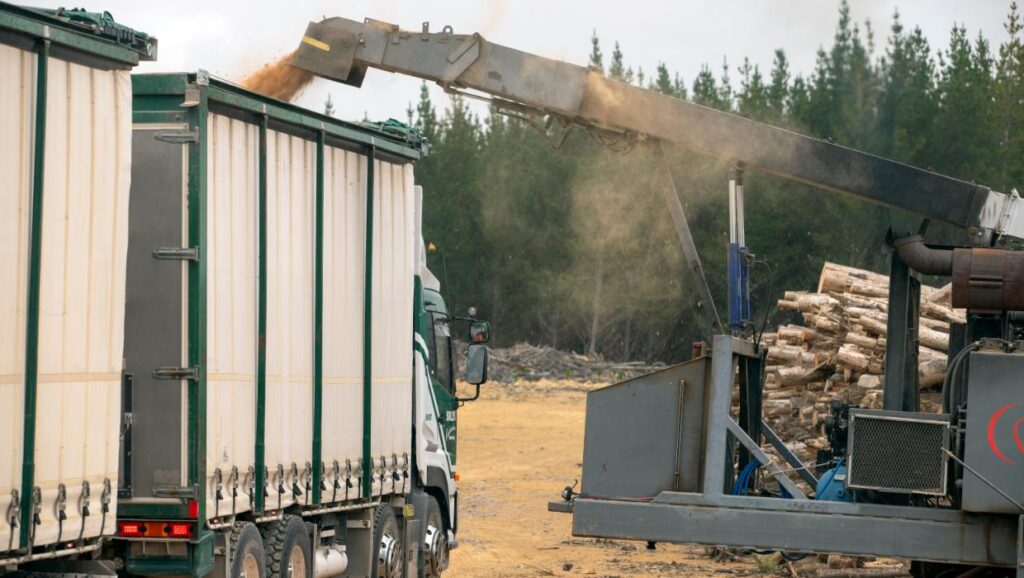Have you ever been to a commercial forest? Even though wood is a renewable product essential to the modern way of life, the market generally dictates what is valued … and for forestry, this means big logs.
The remaining slash (branches, stumps and offcuts) is often considered a waste product.
Forestry company OneFortyOne believes that this wood waste is both a design and a market flaw and is working to find useful applications for this wood fibre, which was previously only viewed as a problem.
The company has invested up to NZ $1m in an innovative biofuel project since late 2021.
Operations manager Mark Coghill says most of the investment has gone towards collecting, measuring and storing the wood fibre.
“Over the next five years, we hope to reduce the amount of wood waste (or slash) in our forests by at least 75,000 tonnes. That’s enough wood to fill 2000 logging trucks or cover ten rugby pitches piled three metres high.”

In a recent breakthrough, the company has signed a new five-year agreement with Canterbury Woodchip Supplies. Under this agreement, wood fibre previously left in the forest will be turned into biofuel, an environmentally renewable resource that could displace coal.
This coincides with a new biomass boiler upgrade by local company J.S. Ewers that will process some of the wood.
With New Zealand committed to reaching net-zero carbon emissions by 2050, this development gives the Nelson Tasman area – where OneFortyOne manages its extensive forests – a path towards reducing its environmental footprint by choosing clean, renewable fuel over environmentally damaging coal.
There’s plenty of headroom for this product – OneFortyOne forests cover 80,000 ha in Nelson Tasman and Marlborough, with a harvest of more than 1.2 million cubic metres yearly.
Mark Coghill says that removing such a massive quantity of otherwise unvalued material from the forests and turning it into biofuel in the form of woodchips could help local businesses avoid burning more than 22,000 tonnes of coal over five years, reducing carbon dioxide emissions by a whopping 50,000 tonnes.

With a good deal of New Zealand’s coal imported, using a locally developed product as an effective coal substitute achieves a multiplier effect. Furthermore, the forests from which the wood is removed are renewable resources.
Currently, OneFortyOne’s plantations are in their fourth rotation, and they are replanted with new seedlings after every harvest. The wood itself is a regenerating asset.
Mark Coghill says slash is often regarded as a problem for the forestry industry but notes that OneFortyOne decided to look at it as an opportunity instead.
That led to talks with Canterbury Woodchips, a seasoned operator producing various processed wood products for use in parks and playgrounds, such as animal bedding, industrial boilers, and other heating sources.
Mr Coghill notes “huge potential” for the project if scaled up, adding that it could be a game-changer for New Zealand in creating a sustainable source of bioenergy.
“We continually look for ways to improve slash management,” he said. “Replacing fossil fuels with bioenergy alternatives can help meet emission targets and create new opportunities for the local economy.”

As a result of this continued work and investment, another promising venture has emerged for slash as feedstock for the production of biochar. This carbon-rich solid product is produced from the pyrolysis (heating in the absence of oxygen) of biomass residues.
Biochar is also useful in agriculture as a supplement to feedstock to reduce cows’ methane production. It can also improve soil properties while offering further potential by sequestering carbon and mitigating greenhouse gas emissions.
- This story was provided to Wood Central by One Forty One New Zealand.






